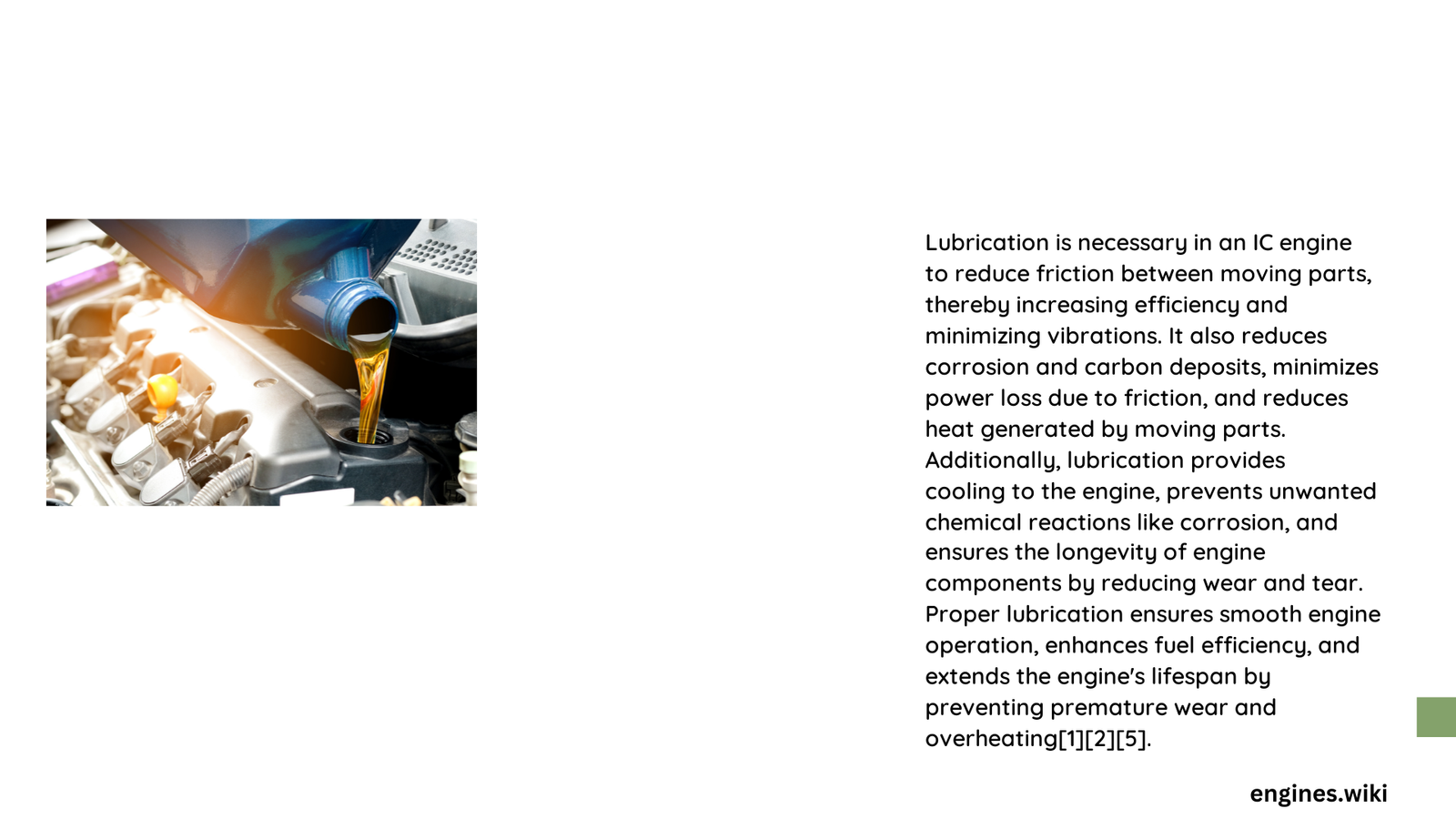Internal combustion engines rely on precise lubrication systems to prevent catastrophic mechanical failure. Lubrication serves as the lifeblood of an engine, creating a microscopic protective barrier between moving metal components, reducing friction, dissipating heat, and ensuring optimal performance across extreme temperature and mechanical stress conditions. Without proper lubrication, an engine would experience rapid wear, overheating, and potentially complete mechanical breakdown within minutes of operation.
What Makes Lubrication Fundamental to IC Engine Survival?
How Does Lubrication Minimize Mechanical Friction?
Lubrication fundamentally transforms mechanical interactions between engine components by introducing a thin, protective oil film that separates moving parts. This film conversion achieves remarkable friction reduction:
| Friction Scenario | Friction Coefficient |
|---|---|
| Dry Metal-to-Metal Contact | 0.5 – 1.0 |
| Lubricated Contact | 0.01 – 0.1 |
Key friction reduction mechanisms include:
– Creating a hydrodynamic oil wedge between surfaces
– Preventing direct metal-to-metal contact
– Distributing mechanical loads across larger surface areas
– Reducing mechanical energy loss through friction
Why Does Heat Dissipation Depend on Lubrication?
Engine oils act as critical thermal management agents, performing complex heat transfer functions:
- Thermal Energy Transportation
- Absorbs heat from high-temperature engine zones
- Transfers thermal energy to cooler regions
-
Prevents localized overheating of critical components
-
Temperature Management Range
- Cylinder wall temperature tolerance: Up to 150°C
- Connecting rod temperature tolerance: Around 120°C
- Maintains consistent thermal performance across operating conditions
What Happens Without Proper Lubrication?
Insufficient or degraded lubrication leads to catastrophic engine consequences:
- Mechanical Wear Acceleration
- Increased friction causes rapid component degradation
- Piston ring scoring and cylinder wall damage
- Bearing surface destruction
-
Potential complete engine seizure
-
Performance Degradation
- Horsepower reduction
- Increased fuel consumption
- Reduced overall engine efficiency
How Do Lubricants Maintain Stability Under Stress?
Advanced lubricant technologies ensure consistent performance:
- Viscosity Index Improvement
- Synthetic oils maintain consistent viscosity across temperature ranges
- 10W-30 oils demonstrate superior thermal stability
-
Reduced performance variability under different operating conditions
-
Oxidation Resistance
- Chemical additives prevent lubricant breakdown
- Extended oil change intervals
- Consistent protective performance
What Economic Impact Does Proper Lubrication Provide?
Effective lubrication delivers significant economic benefits:
- Fuel economy improvement: 2-5% efficiency gain
- Extended maintenance intervals
- Reduced component replacement costs
- Prolonged engine lifespan
Conclusion

Lubrication represents a sophisticated engineering solution that transforms mechanical interactions, prevents wear, manages thermal energy, and ensures long-term engine reliability.
